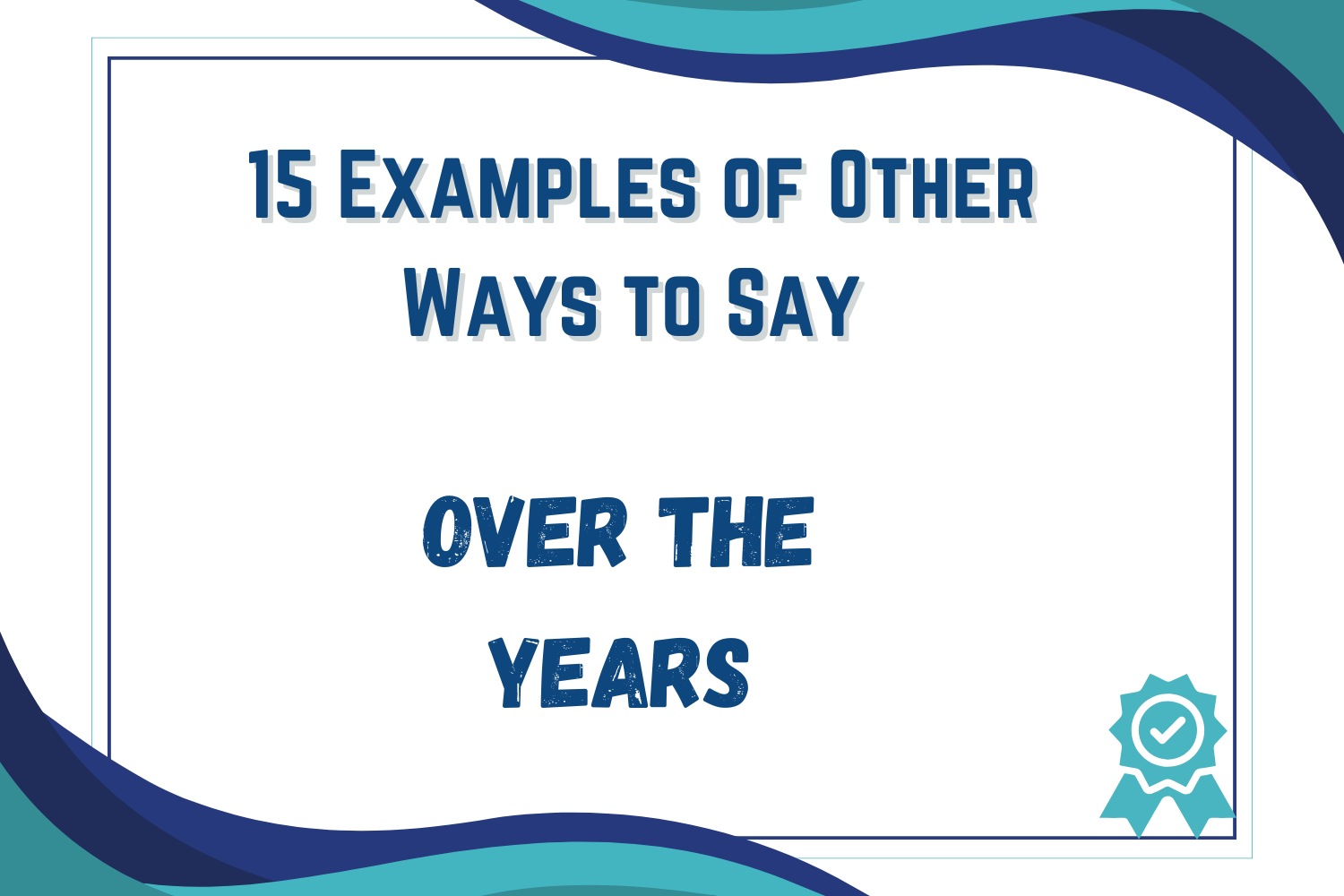Introduction
Language evolves, and so does the way we express ourselves. Mastering different ways to phrase a common idea—like “over the years”—can significantly improve your communication skills. Whether you’re addressing a professional audience or simply refining your daily conversations, expanding your vocabulary adds clarity and depth to your message.
So, what are some examples of other ways to say “over the years”? Phrases like “throughout the decades,” “as time has passed,” or “in the course of time” all provide nuanced alternatives. Each expression fits specific contexts and tones, helping you convey your message more precisely.
In this article, we’ll explore versatile expressions, their cultural considerations, and tips to enhance communication. You’ll discover practical examples and expert advice tailored to learners and professionals alike. Let’s dive in!
Common Alternatives and Their Contexts
1. Throughout the Decades
This phrase emphasizes a longer timeframe, often spanning several decades. It’s ideal for historical discussions, progress tracking, or emphasizing sustained effort.
Example: “Throughout the decades, advancements in renewable energy have reshaped how societies source power. From early wind turbines to modern solar panels, innovation has continually accelerated.”
Description: This expression is suited for formal writing or speeches where the longevity of a topic is emphasized. Its tone is reflective and often tied to progress or changes over time.
2. As Time Has Passed
This phrase adds a reflective, almost sentimental tone, making it suitable for personal stories or observations.
Example: “As time has passed, my appreciation for classic literature has deepened. Stories that once seemed dense now resonate with profound insights into the human condition.”
Description: Perfect for conversational or narrative contexts, it evokes a sense of growth, learning, or transformation.
3. In the Course of Time
A formal alternative, often used in academic or professional contexts to indicate gradual development.
Example: “In the course of time, the company’s commitment to sustainability became embedded in every aspect of its operations, from supply chain logistics to corporate culture.”
Description: This phrase fits well in structured discussions, emphasizing gradual or inevitable change.
4. Over the Course of Years
Blending formality and relatability, this phrase highlights progression within a defined span of years.
Example: “Over the course of years, technological breakthroughs have transformed industries like healthcare, education, and entertainment.”
Description: A versatile choice for essays, reports, or even casual storytelling, it underscores consistent change without being overly formal.
5. Down the Line
A more informal, conversational option often used in future-oriented discussions.
Example: “Down the line, the lessons learned from these challenges will guide us in making better decisions for our community.”
Description: Its approachable tone makes it ideal for casual or motivational contexts, though it might feel too informal for academic use.
Cultural Considerations
Contextual Sensitivity
The choice of expression should always consider cultural norms and the audience’s familiarity with the language. For example:
- “Down the line” may resonate well in American English but could confuse non-native speakers.
- Formal phrases like “in the course of time” are universally understood but might feel overly stiff in casual conversations.
Avoiding Ambiguity
Language learners should focus on contextually appropriate phrases to ensure clarity. For instance, “throughout the decades” might be challenging for beginners due to its historical connotations, whereas “as time has passed” is more intuitive.
Tips for Enhancing Communication
For Language Learners
- Context is Key: Practice using different phrases in varied scenarios to understand their nuances.
- Simplify First: Start with easier expressions like “as time has passed” before experimenting with more complex ones.
For Professionals
- Know Your Audience: Adjust your tone and choice of expression based on your audience’s expectations—formal for business reports, conversational for presentations.
- Seek Feedback: Share your writing or speech with peers to refine your phrasing and improve clarity.
Additional Examples
6. Over Time
Example: “Over time, small habits can lead to significant life changes, proving the power of consistency.” Description: Simple and widely applicable, it’s an excellent choice for both formal and informal contexts.
7. With the Passage of Time
Example: “With the passage of time, ancient traditions evolve, adapting to modern values while retaining their core essence.” Description: Best for reflective or historical contexts, offering a poetic touch.
8. Through the Years
Example: “Through the years, their friendship grew stronger, weathering life’s challenges and joys alike.” Description: This phrase suits narratives or sentimental discussions, evoking a sense of enduring connection.
9. Over the Decades
Example: “Over the decades, cinema has mirrored societal changes, capturing the zeitgeist of each era.” Description: A formal yet approachable choice for discussing long-term trends.
10. Across Generations
Example: “Across generations, the values of community and resilience have remained central to this family’s identity.” Description: Ideal for intergenerational discussions, this phrase emphasizes continuity.
Conclusion
Expanding your vocabulary with alternatives to “over the years” enriches your communication skills and helps tailor your message to diverse audiences. Whether you’re a learner seeking clarity or a professional aiming for precision, these phrases provide a versatile toolkit.
By practicing context-sensitive usage and exploring cultural nuances, you can make your communication both engaging and effective. Try incorporating these expressions in your next conversation or writing—and watch your language skills shine!




